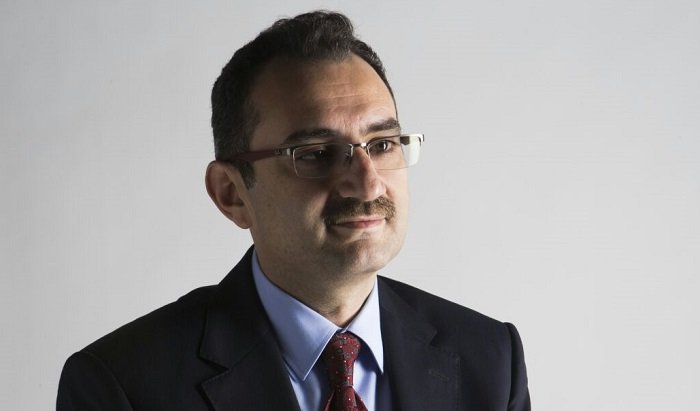Channel Post speaks with Hazem Bazan, the Vice President of Channels & Commercial Sales, Enterprise Business Group ME at Huawei, about his longstanding experience in leading the channel and his advise on building a successful one.

What is your career history to date and key career achievements?
Prior to joining Huawei, I served at Dell Technologies for 10 years as the Regional Sales Director and the Regional Channel Sales Manager. At Dell, I redefined and executed growth plans for the region and developed sales strategies for new acquisitions for practices in the security and data management domain in the region. I also served as a Solution Partner Organization Manager for HP Middle East.
I acquired my Bachelor of Science (BSc) in Communications, Electronics and Computer Engineering from the University of Cairo, and since then I have been recognised as one of the top 50 influencers in the Middle East. Dell EMEA gave special recognition to my business acumen in channel management by awarding me the EMEA Manager of the year.
What are your roles and responsibilities in the company as a channel influencer?
I joined Huawei in August last year, as Vice President of Channels and Commercial Sales. I drive the Middle East channel sales operations, and channel ecosystem across all verticals. Huawei has a great channel partner network, and I am here to take it to the next level. I am keen to strengthen and grow our Partner Incentive and Certificate Program, in addition to growing Huawei’s presence in the Middle East and Pakistan.
In addition, my main responsibility at Huawei is building and developing the channel ecosystem for our partners to achieve our aim of digital transformation. We do this by creating a channel roadmap, and attracting the most appropriate partners based on their potential and calibre for various verticals. As channel vice president, I play the role of a mentor, and assist our partners through various certification and education programs, and leverage that relationship to develop key solutions.
What qualities should a channel influencer possess to lead the channel?
An influencer needs to have deep knowledge of the channel business in the region. This is critical to attract the right people and create a roadmap for your partners. In addition, it is necessary to have a thorough understanding of key market insights and trends. Most importantly however, an influencer must establish trust across its partner network, and be seen as a trusted advisor. This is by far the important characteristic an influencer must have.
What is your advice on finding success in the channel?
Success in the channel business is unique. What works for one, might not work for another. Being up to date and well informed with key market insights and trends is critical to finding success in channel. You have to know your subject matter really well, as you are in the business of collaboration. While selecting and working with partners, you must have a win-win approach. This establishes credibility as a vendor, and commands respect and admiration among the community.
This is how we created our partner ecosystem that covers channel partners, solution partners, service partners, talent alliances, and investment and financing partners.
At the end of 2017, we had more than 13,000 channel partners, 860 solution partners, and 2,900 service partners working with us around the world to deliver solutions to enterprises. Our partners include many industry-leading companies such as SAP, Accenture, GE, Honeywell, Siemens, Alstom, Hexagon, Thales, VST ECS, Synnex, ALSO, and Redington.
How would you assess the current state of channel?
In the region, the ICT field is in a transitional stage, especially in the channel business. There are substantial opportunities that lie in the region that require key players in the industry to adopt the right strategies to achieve their digital transformation goals.
Vendors and channels must focus on core technologies and enhance them. This allows channel partners to sell the core infrastructure of their services, which is critical. To achieve their long term goals, vendors must use an integrated approach in supporting their partners.
What is the biggest challenge facing the IT channel in the region?
One big challenge facing the IT industry is budgets. A lot of partners and vendors are expected to produce a high ROI for their work, adding pressure on the industry. ICT players in are being asked for effective solutions that are not often being met because of financial constraints. This calls for channels to be more creative and innovative in delivering the right needs for the customer by using a unique approach to create seamless and integrated solutions.
If you could improve one thing about the channel business what would it be?
If there’s one thing I’d do to improve the channel business, I’d urge players to ‘bundle’ their services. Using an integrated approach is not only more cost effective, but it also calls for more creativity and innovation that addresses various customer needs.
How can partners work effectively to generate growth in the channel?
Understanding market insights is key. If players do not respond to market demands and trends, no amount of innovation is useful. A key advice I can give is to urge partners to have specific focus areas rather than address every topic they can get their hands on. These areas can be a specific vertical or a specific solution. It enables better results and a higher degree of innovation. Another way to generate growth is to bundle up services. The best system integrators are the ones who integrate their services, and provide the right infrastructure. The best distributors are the ones who use a holistic approach in proving their services such as financial, logistic, technical, pre and post sales services.











